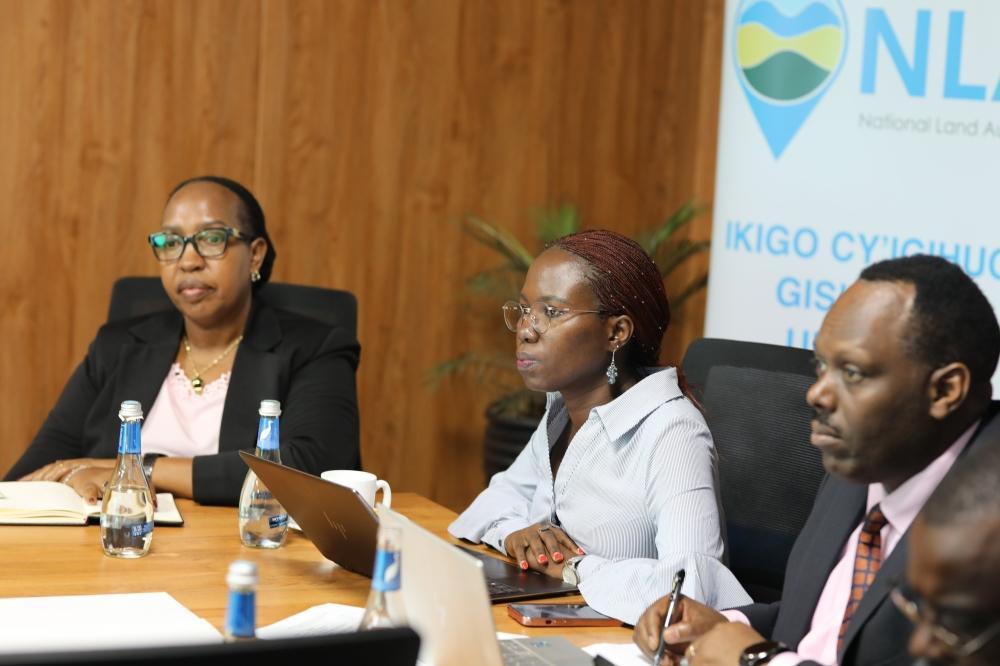Africa-Press – Rwanda. In Rwanda, all land is held under leasehold tenure, a system designed to ensure that land use aligns with national development goals. But what happens when your lease period comes to an end?
According to Christine Nyiranshimiyimana, Registrar of Land Titles and Division Manager at the National Land Authority (NLA), Rwandan citizens don’t need to worry. When a lease expires, it is automatically renewed by the system and no reapplication required.
“The lease duration depends on the master plan and the intended land use. Residential land is leased for 49 years, while land designated for agriculture, livestock, or forestry is leased for 99 years,” she explained.
If someone buys land already under lease—say, after 20 years—the buyer inherits the remaining lease period. “The system continues counting from where the previous owner left off,” Nyiranshimiyimana added.
While citizens benefit from automatic renewals, foreigners do not. When a lease held by a foreign national expires, they must apply for renewal, and the land’s usage is assessed. If it was developed as agreed, the lease may be extended. If left idle or misused, it could be revoked.
Over 40,000 foreigners have acquired land in Rwanda using passports, more than 2,000 through foreign IDs, and about 58,000 with immigration documents. Additionally, 468 foreign non-profit organisations own land in the country.
Asked why long leases—such as 99 years—aren’t made permanent, Nyiranshimiyimana said the current leasehold system reflects deliberate national policy.
“Whether the right is permanent or renewable, the focus is to ensure land is used according to Rwanda’s development strategy,” she said.
Marie-Grace Nishimwe, Director General and Chief Registrar of Land Titles, provided historical context. Prior to 2004, land in Rwanda was state-owned. Citizens could only claim ownership of structures, not the land itself. The land policy adopted that year introduced full ownership rights for citizens and established land registration to protect those rights.
“Before that, land transactions were informal, and during expropriations, only the value of buildings was compensated,” she said.
Today, a land title is essential—not just for legal protection, but also to access loans and other services. Reforms have also helped curb disputes, particularly within families. For example, it is now mandatory for both spouses to sign a sale agreement in front of a notary.
Concerns that Rwanda may run out of agricultural land are unfounded. According to Nishimwe, 87% of the country’s land is designated for agriculture and protected by national and district-level zoning maps.
However, changes in land use do occur when aligned with master plans. What is not permitted are unauthorized shifts that contradict planning policies.
Many land disputes arise from registration errors, unclear inheritance, or delayed ownership transfers. Some buyers fail to update ownership after purchasing land, which can lead to legal issues—especially if the seller later disappears or resells the land.
Peter Kalinganire from CLADHO (Collectif des Ligues et Associations de Défense des Droits de l’Homme au Rwanda) emphasised the need for timely land mutation and applauded the government’s use of drones to resolve boundary issues.
He urged that such technology be extended beyond Kigali to rural areas where most boundary disputes occur.
He also warned buyers to verify the zoning of land before making purchases and ensure that their plans align with the area’s designation—be it industrial, commercial, or residential.
In some areas, unscrupulous individuals have illegally subdivided farmland into small plots, even carving out informal roads to attract unsuspecting buyers.
Land taxation has also evolved. Previously, rates were printed on title deeds. Now, taxes are managed by the Rwanda Revenue Authority (RRA) and updated annually, with rates set by district councils based on parcel location and size.
Plot subdivision services are now available through the Irembo platform. Once requested, a licensed surveyor carries out the subdivision and submits data for district approval. However, a backlog from earlier in-person applications has caused delays. The NLA says it is working closely with surveyors to address this.
Nishimwe also noted that some people still manipulate land records without following legal procedures, including changing names or removing deceased owners from titles. To tackle such practices, CLADHO recommends integrating land education into regular community meetings like umuganda, so residents stay informed about zoning updates and land policies.
As of July 7, 2025, Rwanda had 11.9 million registered land parcels. Of these, 2.2 million are owned solely by women, 1.3 million by men, and 5.8 million co-owned. Over 33,000 parcels are currently under dispute, while more than 152,000 have been used as collateral in banks.
In terms of land use, 8.3 million parcels are designated for agriculture, 1.5 million for residential use, and 1.1 million for forestry. The rest include economic use (105,000 parcels), commercial (59,500), livestock (40,000), industrial (15,900), and administrative land (2,600).
The takeaway? Whether you’re a citizen or a foreign investor, understanding Rwanda’s lease-based land system is crucial—especially if you plan to buy, sell, or develop land in the country. Keeping records updated, verifying zoning, and following legal channels can save you from future disputes.
For More News And Analysis About Rwanda Follow Africa-Press






